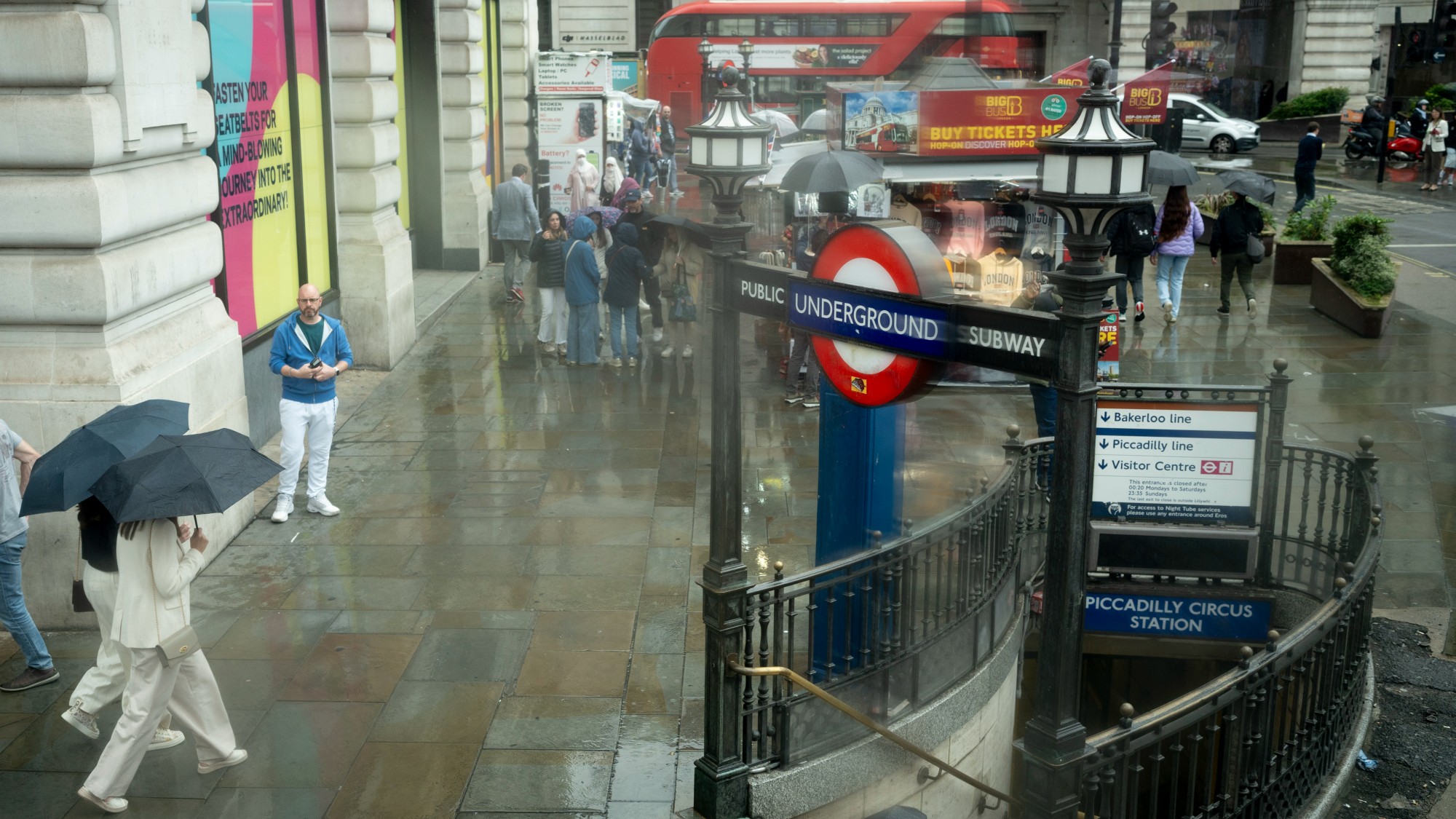The UK's worsening wet weather
More frequent and intense rain is keeping flood boss 'awake at night'

A free daily email with the biggest news stories of the day – and the best features from TheWeek.com
You are now subscribed
Your newsletter sign-up was successful
Stamps, banknotes and the national anthem – just three of the things that changed after King Charles took to the throne. Another change is that the UK has got wetter.
The first 18 months in which the new monarch "rained over us" were the wettest in England since 1836. No one is suggesting that Charles is to blame – but why is it getting wetter and what does this mean?
Is it getting wetter?
Last winter was the eighth wettest since records began more than 150 years ago and England and Wales then had more than one and a half times their average rainfall in March.
The Week
Escape your echo chamber. Get the facts behind the news, plus analysis from multiple perspectives.

Sign up for The Week's Free Newsletters
From our morning news briefing to a weekly Good News Newsletter, get the best of The Week delivered directly to your inbox.
From our morning news briefing to a weekly Good News Newsletter, get the best of The Week delivered directly to your inbox.
The average UK winter has become around 1C warmer and 15% wetter over the past century, new analysis from Carbon Brief found. Combing through more than 100 years of data on temperature, rainfall, wind speed and snow, the researchers found that wet winters are becoming more common.
Why is it getting wetter?
The "simple answer" is that warm air is able to hold more moisture, said the BBC.
For every degree of warming, the amount of water vapour in the atmosphere increases by around 7%, which fuels "more intense rainfall". So for as long as the Earth's climate continues to warm, the atmosphere's capacity to hold water vapour will "continue to increase".
Back in spring of this year, jet streams spun up areas of low pressure, which usually bring rain. Imagine low pressure areas "as sponges full of water", said the BBC. Climate change means "they'll be loaded with even more water than before", so "when they're wrung out, we'll see more rainfall".
A free daily email with the biggest news stories of the day – and the best features from TheWeek.com
What does this mean for the future?
Well, there's good news and bad news. The Met Office has predicted that by 2070, winters in the UK will be up to 30% wetter than they were in 1990 and rainfall will be up to 25% more intense. The most severe downpours, 30mm or more rain in an hour, are expected to occur twice as often.
This means the risk of flooding will increase, with ground becoming saturated by persistent winter rainfall and drainage systems being "overwhelmed".
"Rainy old England" is certainly getting wetter, said Politico, and "Britain isn't ready". Experts paint an unsettling picture of the future. The danger of "very intense rain cells", Environment Agency boss Philip Duffy said last year, "genuinely keeps me awake at night".
John Curtin, a former Environment Agency boss with more than three decades of experience in flood management, recalled the 1953 flood, when 326 people died along Britain's east coast. "If a 1953 flood – which was 'once in a century' – becomes annual", he said, "what on earth does a 'once in a century' storm look like?"
The good news is that scientists recently found that rain can make us happy and improve our mental health. After drops of water hit a hard surface, negative ions can be formed in the air. Several scientific studies suggest that inhaling these negative ions has a positive effect on your health and mood.
"Nobody really knows exactly why that happens," Dr Niek Buurma, of Cardiff University’s School of Chemistry, told the BBC, but there are clear indications that "people feel more positive after inhaling negative ions".
Chas Newkey-Burden has been part of The Week Digital team for more than a decade and a journalist for 25 years, starting out on the irreverent football weekly 90 Minutes, before moving to lifestyle magazines Loaded and Attitude. He was a columnist for The Big Issue and landed a world exclusive with David Beckham that became the weekly magazine’s bestselling issue. He now writes regularly for The Guardian, The Telegraph, The Independent, Metro, FourFourTwo and the i new site. He is also the author of a number of non-fiction books.